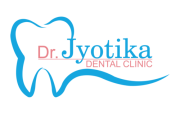TMJ, Nightguards, Botox® Therapy

Managing Stress and Bruxism
Life can be stressful, and stress often shows up in our bodies—especially in the jaw. Many people unconsciously clench or grind their teeth, a condition known as bruxism. Over time, bruxism can cause:
- Tooth sensitivity, wear, or fractures
- Chipping of root enamel (abfraction)
- Formation of bony protrusions (tori)
- Jaw, neck, shoulder, and upper back pain
- Headaches or migraines
- Jaw clicking, locking, and changes in facial appearance
Excessive teeth grinding can even change the structure of your face, making the jaw appear wider or more squared.
Nightguards for Protection
Bruxism can occur both during the day and at night. Custom-made nightguards protect your teeth, jaw joint (TMJ), and surrounding muscles while reducing strain on the neck and back. Our dental team can create thin or thick, soft or hard oral appliances tailored to your specific needs.
Botox® for Therapeutic Relief
Botox® is a purified protein that temporarily relaxes overactive muscles. While commonly known for cosmetic purposes, Botox® is also an effective treatment for bruxism and related pain. By targeting overactive chewing muscles, Botox® can:
- Reduce jaw tension and muscle tenderness
- Improve the ability to open and close the jaw
- Decrease headaches, migraines, and referred neck or back pain
Are You a Candidate?
If you experience grinding, clenching, jaw pain, or frequent headaches, a consultation can determine whether Botox® therapy is right for you. Nightguards remain a key protective tool, but Botox® may provide additional relief by addressing muscle overactivity directly.
Safety and Duration
When administered by trained professionals with detailed knowledge of head and neck anatomy, Botox® is extremely safe. Effects typically last 3–6 months. Only FDA-approved brands are used in our office, and side effects—such as temporary bruising, swelling, or mild weakness—are generally minimal and manageable with proper care.

